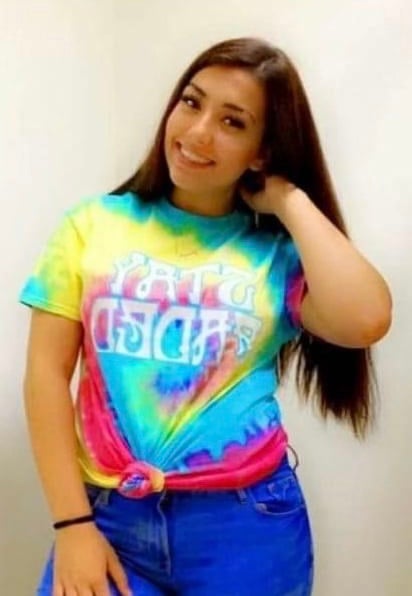Jury finds 19-year-old guilty of manslaughter in 2021 shooting death of Layla Watson
Published 11:44 am Monday, August 28, 2023
|
Getting your Trinity Audio player ready...
|
After deliberating for less than an hour, a Covington County jury found Damien Lashawn Beasley, 19, guilty of manslaughter, abuse of a corpse, and tampering with physical evidence. Presiding Circuit Judge Lex Short presided over the three-day trial, during which the jury heard evidence pertaining to the death of Layla Watson.
Grace Jeter was the primary prosecutor for the State. She was assisted by District Attorney Walt Merrell who commended Jeter for doing a “great job.” “The entire office poured themselves into the case. It was a true team effort,” Merrell said. Beasley was represented by Gulf Shores attorney Riley Powell.
The evidence at trial showed that on the morning of April 6, 2021, Watson, Beasley, Brayden Awalt, and Robert Jones were at Awalt’s grandmother’s home on Whatley Street in Andalusia. Watson had graduated from Pleasant Home School the previous November, but it is unclear why the others were not at school that day. While the four were in the backyard, Awalt retrieved a shotgun and gave it to Beasley. Beasley and Watson were standing near each other conversing, as Awalt described Beasley being casual with the gun. Jones, on the other hand, described Beasley’s conduct with the gun such that it warranted Awalt telling Beasley to “chill” and to “put the gun down.” According to both Jones and Awalt, Watson’s last words were, “He’s alright. It won’t shoot.”
On cross-examination from Jeter, Awalt acknowledged that Watson could have said, “You won’t shoot.” Neither Awalt nor Jones testified that they saw Beasley point the gun at Layla. They did both testify that they heard the shotgun fire and looked up to see that Watson had fallen and that Beasley was still holding the shotgun. Testimony further revealed that Beasley and Awalt dug a hole beneath the privacy fence surrounding the home and dragged Watson’s body under the fence and through the woods that adjoined the home’s backyard. They hid her body beneath a fallen tree in an effort to conceal it. They then threw the shotgun into the woods and fled the scene. Jones, who had left immediately after Watson’s death and did not assist in hiding her body or the shotgun, but instead went to the Andalusia Police Department and reported, “I’ve witnessed a murder.” At trial, Jones told the jurors that Watson’s death “was an accident” but admitted that was not what he told law enforcement.
Andalusia Captain Paul Dean testified he found Watson’s body in the woods and also found a shotgun nearby. Captain Dean, a firearms instructor, was recognized as an expert in the field of firearms at the trial. He testified that the shotgun was a Stephens 620, a 12-gauge military shotgun that was manufactured until the 1960s. He told the jury he had inspected the weapon and found that the safety mechanisms and internal parts of the weapon were, in fact, in working order, despite that the shotgun was old and dirty, and the stock was broken. The ejector, which releases a spent shell casing, was also broken, but Dean testified that these issues would not have affected the weapon’s ability to fire. Dean also test-fired the shotgun, asserting to the jury that the shotgun fired properly when the safety was off and the trigger was pulled. The jurors also heard from Andalusia Investigator and case agent Gene Jackson who said that Beasley and Awalt had hidden their clothing and muddy shoes before fleeing the scene.
Dr. Edward Reedy, a medical examiner with the Alabama Department of Forensic Sciences, testified that Watson’s cause of death was a shotgun wound to her head. During the autopsy, he removed multiple birdshot pellets and wadding from the wound. Dr. Reedy said that Watson was shot at very close range, between four and six inches.
Beasley did not testify on his own behalf but presented evidence from Awalt. Though Awalt insisted Watson’s shooting was “an accident,” he admitted that Beasley was holding the gun and “waving it around.”
“It was our position that squeezing the trigger constituted murder,” Merrell said. “There was no evidence of a misfire. The only logical conclusion to us was that he squeezed the trigger and, therefore, we proceeded with the prosecution of murder.”
The jury did have the authority to find Beasley guilty of a lesser charge, in this case manslaughter.
“While Beasley was charged with and tried for the crime of murder, under Alabama law, the jury is allowed to consider whether the defendant is guilty of the crimes he is charged with or any lesser-included offenses of those crimes,” Jeter said. Jones and Awalt were the only two witnesses. Beasley’s lawyer tried to convince the jury that Beasley was ‘a 17-year-old who had never held a shotgun in his life’ and that Layla’s death was ‘a tragic accident.’ A criminal defendant’s intent is a difficult element of a crime to prove because, to some extent, it involves trying to see ‘what he was thinking.’ In this case, there was no question that Beasley caused Watson’s death, and there was no question that he was the one holding the shotgun. The jury heard the evidence and found that it showed he was acting recklessly as opposed to intentionally. We have to respect their decision.”
Beasley’s sentencing hearing is set for Oct. 25, 2023. Manslaughter is a Class B felony, which ordinarily has a sentencing range of two to 20 years imprisonment. However, because Beasley used a firearm in committing this crime, his minimum possible sentence for manslaughter is raised to 10 years imprisonment with a maximum of up to 20 years. He also faces up to 10 years imprisonment for his conviction of abuse of a corpse and up to one year imprisonment for the tampering with evidence conviction.
“We will ask Judge Short to sentence Beasley to the maximum sentences for each conviction and to run those sentences consecutively. That means we will ask for 31 years in prison,” Merrell said. “So many people worked together on this investigation and this case and we have all put a lot of blood, sweat, and tears into reaching this point. Layla’s family and friends remain in our prayers. We may never know why Layla was killed, but we pray for the peace that surpasses all understanding for her family.”
Merrell said his office was the target of some complaints about the timeliness of the prosecution, but countered that the timing of the case was ahead of many others the DA’s office has brought during his tenure.
“Most of what was said on social media was simply untrue,” he said. “We’ve already prosecuted one other person, a juvenile, for his involvement in helping cover up the crime. We’ve been in court dozens of times and this matter was concluded in just over two years. I have been doing this for 20 years and I have never seen a murder case tried within two years. Most of the people complaining had no idea what the truth was, nor did they actually know what they were talking about.”
Watson’s mother, Marcie Watson, expressed her appreciation for the community’s support and the support her family received from the district attorney’s office and the Andalusia Police Department.
“From Gene and Brett [Holmes] always being there to listen to me, to Grace fighting hard for Layla, to Amber [Gladwell] and Erin [Wilson] always making sure we were comfortable and not stressed any more than what we already were … everyone fought so hard for Layla and never stopped. From the first time I sat in Walt’s office, he told me Layla would get justice. It might not be in the time I wanted it, but it would happen. I was told from day one by a good friend to keep fighting the good fight. And that’s what I’ve done. I will never get Layla back, but I know she is smiling down on us now,” M. Watson said.
Jeter expressed her appreciation for the jury’s efforts.
“This was not an easy case and I appreciate how hard they worked to get to a verdict,” she said.
Both Jeter and Merrell collectively expressed their appreciation for the hard work put into the case by so many people —from the Andalusia Police Department and from the DA’s office. “This was an all-hands-on-deck case and everybody worked hard to get justice for Layla,” Merrell said.







